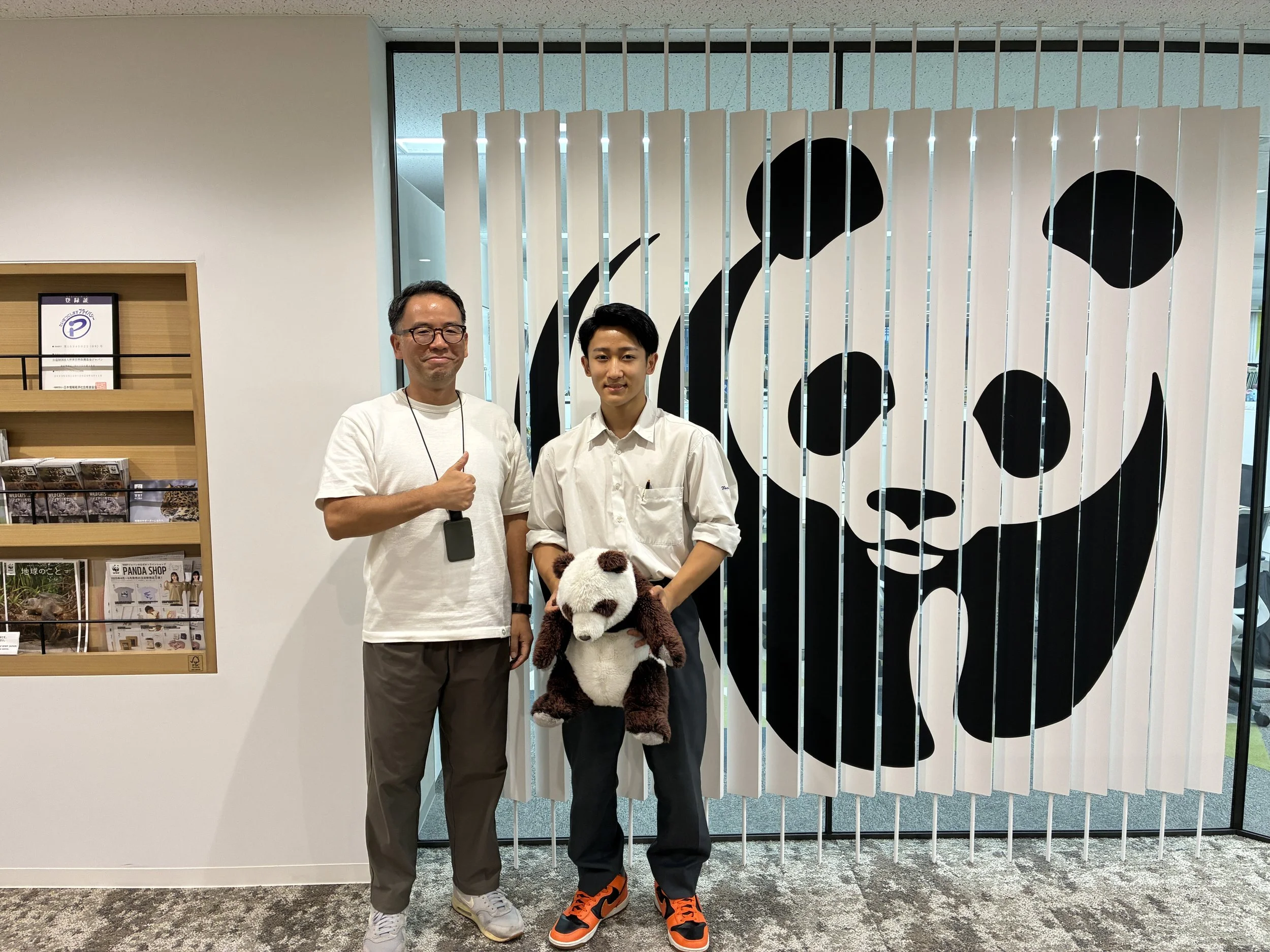A Talk with WWF staff
Last week, I was invited to the office of WWF Japan by one of the staff members who specializes in promoting a sustainable textile industry in India.
Gratefully, he has been aware of my project Psyche+ and suggested meeting in person to discuss it and exchange ideas about environmental issues.
Until now, when selling T-shirts and donating the proceeds, I hadn’t paid much attention to the materials used. During our conversation, however, I was greatly inspired to think more deeply about textile materials. The T-shirts I currently sell are made of natural cotton, but not organic cotton.
In fact, the use of conventional cotton has serious environmental impacts. The cotton industry requires enormous amounts of water and can cause water shortages and pollution. For example, the Aral Sea in Central Asia has almost disappeared due to excessive irrigation including cotton cultivation.
In the fashion industry, dyes and chemicals used in the production process can also contaminate water. Improperly managed wastewater exacerbates this issue, destroying aquatic ecosystems and ultimately contributing to food crises. What makes environmental problems more threatening is their chain effect—once one issue arises, it often triggers others incessantly.
Therefore, I will start considering the use of more eco-friendly material from now on.
先週、僕はWWFジャパンのオフィスにお招きいただき、インドにおいて持続可能な繊維産業の推進に取り組まれているスタッフの方とお会いした。
ありがたいことに、その方は私のプロジェクト「Psyche+」を以前からご存じであり、直接お話しする機会を設けてくださり、環境問題について意見交換を行うことができた。
これまで私は、Tシャツを販売し、その収益を寄付する活動を行ってきたが、素材そのものについて深く意識したことはなかった。しかし、今回の対話を通じて、繊維素材の環境負荷について改めて考えさせられるきっかけを得た。現在販売しているTシャツは天然コットンで作られているが、オーガニックコットンではない。
実際のところ、一般的なコットンの使用は環境に深刻な影響を及ぼしている。コットン産業は膨大な量の水を必要とし、水不足や水質汚染を引き起こす要因となっている。たとえば、中央アジアに位置するアラル海は、コットン栽培を含む農業のための灌漑による影響で、もはや海と呼べないほどに縮小してしまった。
さらに、ファッション産業では衣類の製造過程で使用される染料や化学薬品が水質を汚染することがある。不適切に管理された排水が流出することで水中生態系が破壊され、最終的には食糧危機を招く恐れもある。環境問題が特に恐ろしいのは、その連鎖的な影響である。ひとつの問題が発生すると、次々と新たな問題が派生していってしまう。
したがって、今後はより環境に配慮した素材の使用を検討し、プロジェクト全体として持続可能性をさらに高めていきたいと考えている。

